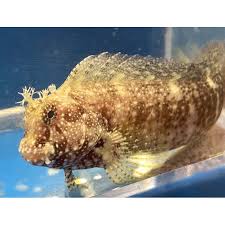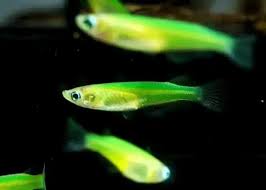
In Chinese culture, dragons are far more than mythical creatures; they represent a profound symbol of power, prosperity, and good fortune. The belief in dragons spans centuries, deeply ingrained in Chinese folklore, art, and practices such as Feng Shui. The mystical creature’s connection to nature, the elements, and the forces of the universe has made it a powerful figure in shaping the traditions, rituals, and philosophies of Chinese society. This article explores the role of dragons in Chinese folklore and their significant connection to Feng Shui, a practice that emphasizes the flow of energy (qi) in the environment to promote balance, harmony, and good fortune.
The Significance of Dragons in Chinese Folklore
The Chinese dragon is a symbol of great power, nobility, and the natural forces of the universe. Unlike the menacing, destructive dragons seen in many Western myths, the Chinese dragon is typically portrayed as benevolent, wise, and protective. This mythical creature is often associated with the Emperor, who was thought to be the earthly manifestation of the dragon’s power and authority. For centuries, Chinese emperors adorned their robes with dragon motifs, believing that the dragon was their protector and a symbol of their divine right to rule.
In Chinese folklore, dragons are depicted as long, serpentine creatures with the ability to control elements such as water, rain, wind, and fire. They are thought to possess the power to summon rainstorms, provide fertile harvests, and maintain harmony in nature. According to myth, dragons inhabit the seas and oceans, often seen as guardians of the natural world who ensure the balance between heaven and earth.
One of the most well-known dragon myths in Chinese folklore is the tale of the Yellow Emperor (Huangdi), who sought the help of a dragon to lead his people to prosperity. The dragon guided him and helped him bring order and stability to China, reinforcing the dragon’s role as a harbinger of good fortune and success.
The dragon’s benevolent nature is also reflected in its presence during the Chinese New Year. The Dragon Dance, a traditional performance where dancers move beneath a large dragon puppet, is believed to bring good luck, expel evil spirits, and ensure a prosperous year ahead. As the dragon symbolizes the coming of rain, the Dragon Dance is also a celebration of the harvest and agricultural abundance.
The Connection Between Dragons and Feng Shui
Feng Shui, an ancient Chinese practice that seeks to harmonize individuals with their environment, has an intrinsic connection to the dragon as a symbol of vitality, power, and prosperity. In Feng Shui, the goal is to create an environment that promotes the free flow of qi (also spelled chi), the vital life force that permeates all living things. The dragon is a key figure in this practice because it represents the powerful, positive energies that can shape one’s fate and fortunes.
Feng Shui principles emphasize the alignment of living spaces with the natural world and the flow of energy through careful placement of objects, colors, and shapes. The dragon, as a symbol of good fortune, is often used in Feng Shui to attract positive energy and remove negative influences from a space. Many Feng Shui experts recommend placing dragon symbols in specific locations within the home or office to bring about wealth, success, and protection.
Dragons in Feng Shui: Symbols of Protection and Prosperity
In the practice of Feng Shui, dragons are believed to protect their owners and bring wealth, prosperity, and good fortune. Dragons are often placed in specific areas of the home or workplace to activate the positive flow of qi and improve one’s fortune.
1. Dragons as Protectors in Feng Shui
The Chinese dragon is often used in Feng Shui to protect people and their homes from negative energies and harmful influences. According to Feng Shui, dragons are powerful and benevolent creatures that ward off evil spirits, ensuring that the home or office is shielded from malefic forces. When placed at the right locations, dragon symbols can act as guardians, providing protection and security to the household.
For example, placing a dragon statue near the entrance of a home is believed to act as a protector, guarding against any negative energy that may try to enter the space. Similarly, a dragon positioned in the north section of the home or office is said to offer protection and bring prosperity to the family or business.
In some Feng Shui traditions, the dragon is also used in combination with other symbols, such as the phoenix, to create a balanced and harmonious energy within the home. The phoenix represents the feminine, nurturing aspect of energy, while the dragon represents strength, power, and protection. Together, they form a complementary force that protects and nurtures the occupants of a space.
2. The Dragon’s Role in Attracting Wealth and Prosperity
One of the most common uses of dragons in Feng Shui is their ability to attract wealth and prosperity. The dragon, as a symbol of power and good fortune, is believed to activate wealth energy, ensuring that money flows into the household or business. This is particularly important in areas associated with financial success, such as the wealth corner of a room or office.
To harness the dragon’s wealth-enhancing properties, Feng Shui practitioners often recommend placing a dragon figurine near the southeast corner of the room, which is traditionally associated with wealth and abundance. This placement is believed to attract the energy of prosperity, helping individuals to achieve financial success and improve their material well-being.
Additionally, placing a dragon figurine on the desk of a business owner or entrepreneur is said to enhance their career and attract business opportunities. The dragon’s symbolism of authority and strength helps to reinforce the individual’s leadership abilities and attracts success in their professional life.
3. The Dragon as a Symbol of Longevity and Vitality
In Chinese culture, the dragon is also a symbol of longevity and vitality. Its association with eternal life and the endless flow of energy makes it a powerful symbol for maintaining good health and well-being. In Feng Shui, the dragon is placed in areas that promote vitality, energy, and longevity, ensuring that the inhabitants of a space remain healthy and prosperous.
For instance, placing a dragon figurine in the east section of the home, which is linked to health and family, is believed to improve the health and well-being of the household. The dragon’s energy is thought to strengthen the immune system and protect individuals from illness and misfortune.
Moreover, the dragon’s association with water in Chinese mythology—particularly in the form of rain—further connects it to the concept of rejuvenation and vitality. Dragons are seen as water creatures that nourish the earth and maintain the balance of nature, symbolizing the life-giving forces of water and energy.
The Dragon in Feng Shui Elements and Directions
Feng Shui divides the world into eight directions, each associated with different elements, energies, and aspects of life. The dragon, with its powerful and transformative qualities, is connected to certain elements and directions that are believed to amplify its protective and prosperity-bringing abilities.
1. The Dragon and the Water Element
Dragons are closely associated with the water element, as they are believed to control water and rain. In Feng Shui, water symbolizes wealth, abundance, and flow, which makes the dragon an ideal symbol for attracting prosperity and success. Water features such as fountains, fish tanks, or aquariums are often used in Feng Shui to enhance the flow of qi, and when combined with dragon symbols, they can be especially powerful.
2. The Dragon and the North
In Feng Shui, the north direction is associated with the element of water and the energy of career and life path. The dragon’s connection to water makes it a potent symbol when placed in the north section of a room or office. Here, it can help to activate the energy needed for career advancement, personal growth, and success.
3. The Dragon and the Southeast
The southeast direction is associated with wealth, abundance, and material prosperity. The dragon, as a symbol of good fortune and success, is often placed in this area to attract wealth and ensure financial stability. When placed in the southeast corner of the home or office, the dragon is believed to activate the flow of money and improve one’s financial situation.
Conclusion: The Power of Dragons in Feng Shui and Chinese Folklore
Dragons have long been revered in Chinese culture for their symbolism of power, protection, prosperity, and good fortune. In Chinese folklore, the dragon is seen as a benevolent, celestial creature that brings harmony to the natural world, while in Feng Shui, the dragon is used as a powerful tool to attract positive energy, protect against negative forces, and enhance wealth and success.
Whether as a guardian of the home, a symbol of financial prosperity, or a bringer of vitality and longevity, the dragon holds a unique and revered place in the practice of Feng Shui. Its enduring presence in Chinese culture continues to influence the way people interact with their environment, ensuring that its power and auspiciousness are felt for generations to come. By harnessing the energy of the dragon, individuals can create spaces that are filled with prosperity, protection, and harmony—key elements in the pursuit of a happy and successful life.









